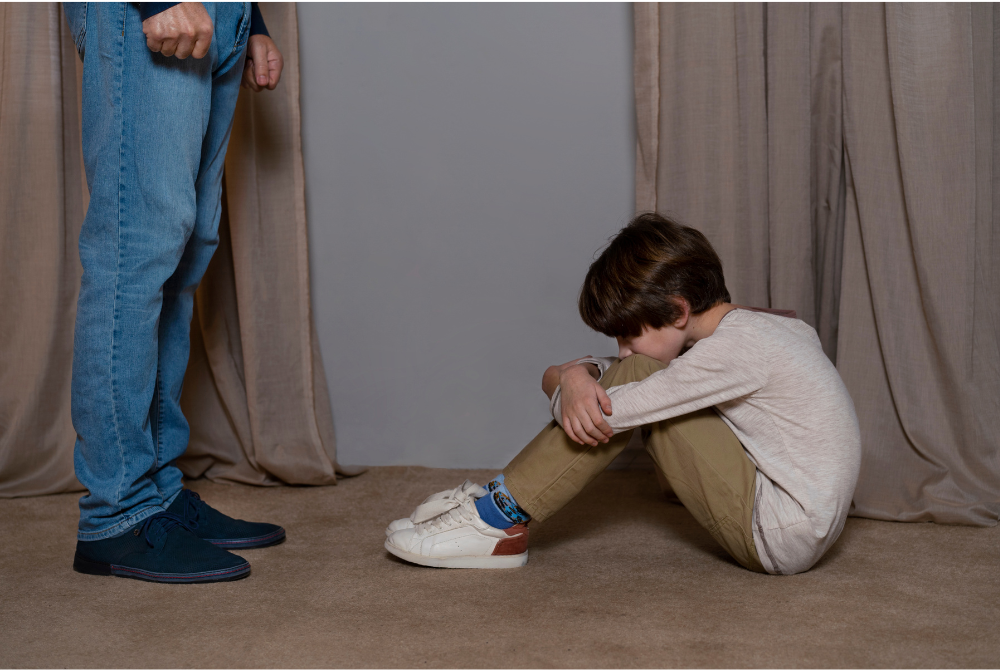How childhood emotional neglect shows up in adult life

The formative years of childhood, which spans the period of up to eight years of age are the most important years for a child.
It is within this period that a child experiences rapid physical, emotional and social development.
From a psychological perspective, Associate Prof Dr Nazariah Sharie Jenon, who is an expert in Developmental Psychology from the International Islamic University (IIUM) said there are three crucial areas of development, which are physical, cognitive, personality and socio-emotional.
Personality and socio-emotional development is equally important as cognitive and physical as it lays the groundwork in shaping a child’s self-confidence, the ability to develop meaningful relationships, practice social skills and more, which will later shape how we are as adults.
Parents and caregivers play a central role in catering to a child’s emotional needs, given they are the child’s primary social group.
However, emotional neglect in childhood can happen. It occurs when parents fail to meet a child’s emotional and psychological needs. What’s worse, it can go unnoticed, unintentional or otherwise.
Az-Zahrah Multi-Intelligence Academy (AMPAC) psychology counsellor Nurin Farisha Mohd Supi said emotional neglect during childhood can take many forms.
“Emotional neglect could mean that the parents completely disregard their children’s feelings, thoughts, opinions. Another form of neglect is when they are overly controlling over their child’s life to the point where they disregard or invalidate the child’s feelings. They only prioritise their own feelings and expectations,” she said.
The bad news is that childhood emotional neglect shows up in adult life. From the lack of attention, surface-level conversations and the inability of parents to connect with their children, it will impact how an adult expresses emotions, and the risk for issues like depression or anxiety will heighten.
Why do parents neglect their children’s emotional needs? The answer varies.
“The parent could be experiencing mental health issues of their own, they could have their own struggles to deal with, and it could also be linked to transgenerational trauma,” said Nurin.
TRANSGENERATIONAL TRAUMA
Transgenerational trauma, a breakdown of the umbrella term ‘generational trauma’.
Generational trauma is when a generation experiences horrific or traumatic events such or prolonged periods of difficulty.
Transgenerational trauma is essentially how trauma spills or transfers through generations. Let’s say a woman experienced physical abuse by her parents when she was young, she lets the legacy of trauma live on to the next generation by behaving the same way with her own kids. This then creates a negative environment and dysfunctional dynamic within her household.
“When there is an unhealthy attachment with the family, this is when they will be in a dysfunctional environment.
“When we are in such an environment, from the physiological point of view it causes stress levels to shoot up, which will then lead to other chronic health issues,” she said.
However, Nurin said that even though the symptoms related to generational trauma are well-accepted among experts, according to the Diagnostic and Statistical Manual of Mental Health Disorders, Fifth Edition (DSM-5), there is no specific diagnosis of generational trauma, therefore no specific solutions can be provided for this condition.
For the record, the DSM-5 is the standard mental healthcare providers use to diagnose mental health conditions.
“Another reason for this is because different people react differently to generational trauma. One could develop anxiety, another could be dealing with depression or trust issues for example,” she said.
Nazariah said if someone becomes aggressive due to the product of their childhood experience, it will likely be permanent if the environment continues to be that way in the later stages of their life.
“When you feel negatively, the physiological changes will react consistently. When you experience abuse as a child, you are more likely to think this is the only way to overcome fear - if I don’t become aggressive, people will abuse me,” she said.
BREAKING THE CYCLE
It is in fact, possible to break the cycle of generational trauma. But it requires a lot of effort from all parties.
Firstly, Nazariah said that if a person doesn’t realise the impact of their behaviour on their children, the cycle will likely continue.
“As they get older and they realise that certain actions are wrong, and if they surround themselves with a non-aggressive environment or marry someone with good values, then there is a possibility for change. The environment plays a big role as it can twist how we think,” she said.
As for Nurin, she said that parents first have to be aware of their own behaviour and how it impacts their children. From this, they can take action such as seeking professional help.
“Be mindful of signs that your children may be feeling neglected emotionally. It could be as simple as them showing low self-esteem or going through drastic changes in behaviour,” she said.
ARE PARENTS SOLELY TO BLAME?
While it’s true that the foundation for good education begins at home and that parents are responsible for teaching good values and leading by example, both Nurin and Nazariah said it’s important to remember that our parents are also human beings.
“They make mistakes too. Not everything that our parents teach us are good for us. Don’t put the blame entirely on your parents for how your behaviour or personality turned out.
“As we grow, we are able to think what actions are right or wrong. It’s our own responsibility to choose how we want to react towards certain situations. Don’t let our parents’ actions stop us from becoming better human beings in the future,” said Nurin.
“It’s not condusive to constantly put the blame on your parents or someone else for your behaviour. You need to be at peace and your soul needs to be calm.
“From a religious perspective, you need to remind yourself that there are reasons you go through your life experiences – put your faith in Allah SWT and InsyaAllah all will be ok,” said Nazariah.
Download Sinar Daily application.Click Here!















